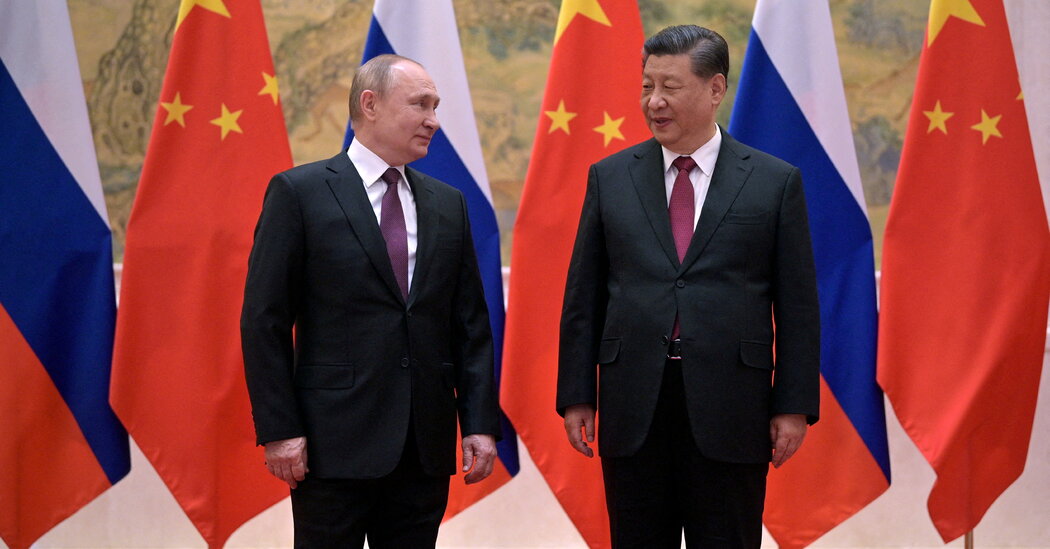
China and Russia have been strengthening their economic, diplomatic and military ties for years. Mr. Xi and Mr. Putin met 37 times as national leaders before their latest conclave in Beijing. The ambitious joint statement that the two nations issued during that meeting alarmed American and European officials, especially because it was the first time China had explicitly sided with Russia on issues concerning NATO and European security. European leaders have denounced China and Russia since then.
Representative Mike Gallagher, Republican of Wisconsin and a member of the House Intelligence Committee, said he was not familiar with the intelligence on discussions between Russia and China over Ukraine, but Beijing’s support of Moscow was clear.
“The Chinese support all of Putin’s narrative to blame the West for provoking Russia,” Mr. Gallagher said. “I see no change in the Chinese views on Russia. They remain in a de facto alliance against the West at this point.”
For months, some American officials tried to recruit China to help avert the war.
Days after President Biden spoke to Mr. Xi in a video summit on Nov. 15, senior American officials decided to present intelligence on the Russian troop buildup around Ukraine to senior Chinese officials to try to get them to persuade Mr. Putin to stand down. The Americans talked to Qin Gang, the Chinese ambassador in Washington, and to Wang Yi, the foreign minister. In a half-dozen meetings, including one in Washington between U.S. officials and the Chinese ambassador just hours before the Russian invasion, Chinese officials expressed skepticism that Mr. Putin would invade Ukraine, American officials said.
After one diplomatic exchange in December, U.S. officials received intelligence showing Beijing had shared the information with Moscow, telling the Russians that the United States was trying to sow discord and that China would not try to impede Russian plans, American officials said.
U.S. intelligence findings and assessments of Russian plans for an invasion of Ukraine have generally been accurate. The Americans began a campaign last fall to share intelligence with mainly ally and partner nations and to present declassified material to the public to build pressure on Russia to halt any planned invasion. William J. Burns, the C.I.A. director, flew to Moscow on Nov. 2 to confront the Russians with the information, and on Nov. 17, American intelligence officials shared their findings with NATO.
British officials had assessed that an attack by Mr. Putin before the Olympics was possible but unlikely, according to multiple officials briefed on London’s intelligence. That was partly based on the Western intelligence report, but mostly on an analytic assessment that Russia’s plan to overcome Western sanctions was highly dependent on China’s support and the notion that Mr. Putin would not risk angering Mr. Xi.




